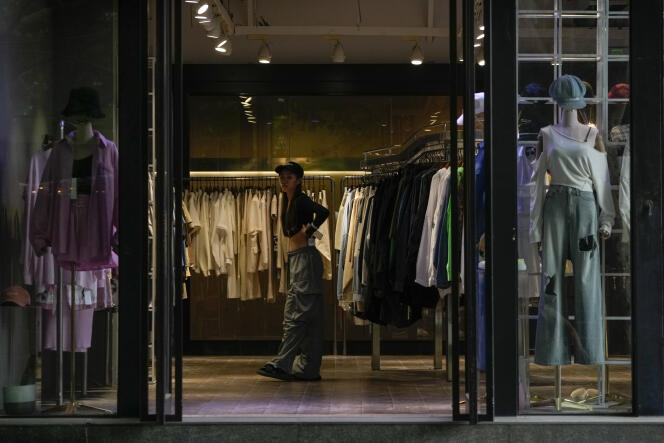


Is the Chinese economy on the brink of collapse? In a matter of only two weeks, bad news has been piling up for the world's second-largest economy: Exports fell by 14.5% in July, major property developers defaulted and went bankrupt, and the country entered deflation territory.
As a sign that the situation is serious, the Chinese government is doing its utmost to hide the difficulties: Economists have been asked to talk only about good news, and the National Bureau of Statistics has stopped publishing figures for youth unemployment, which broke a record in June, reaching 21.3%. On the ground in China, it's hard to find employers who are optimistic about the state of their sector. With little confidence in the future, households are saving more than they spend.
While the mood is gloomy, experts agree that the bursting of a '08 Lehman Brothers-style speculative bubble is unlikely. Rather, the risk is that the current crisis will drag on, ushering in a long period of stagnation like that experienced by Japan after 1991.
The cyclical slowdown is in addition to a structural trend. It is the end of an era of strong growth, and the entry into a period of "new normal," marked by a less dynamic China, whose population is falling, but whose development is based on "high-quality" growth, according to the official jargon –meaning it is based on consumption and high technology, rather than on investment and exports.
But negotiating this landing, after some 30 years of unbridled development, is particularly delicate. It is even the greatest economic challenge of Xi Jinping's presidency because the current slowdown reveals the imbalances that accumulated during the previous period.
The main concern is the risk of contagion from real estate to finance. Following Country Garden's default, another piece of news created panic among investors: A subsidiary of the Zhongzhi investment fund also defaulted on bonds, as its creditors revealed on August 11. The company is one of the main players in China's "shadow finance" sector, which is less controlled than banks that are open to the general public, but it plays an important role in financing the private sector.
These institutions' exposure to the real estate sector has raised fears that they could be the next to fall when over 80 developers have defaulted in the last two years. In 2022, the difficulties of local banks in Henan (Central China), which are close to property developers, prompted thousands of savers to demonstrate in order to recover their savings.
You have 58.72% of this article left to read. The rest is for subscribers only.
